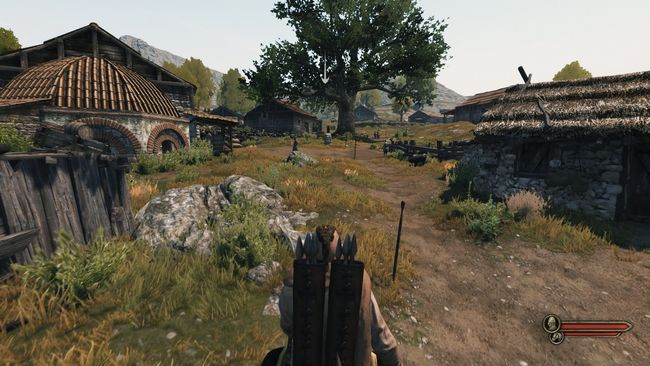Table of Contents Show
This guide aims to put all information regarding Governors into one easily accessible place. Information in this guide is subject to and will change as the game does and new information is found regarding them.
Other Mount & Blade II Bannerlord Guides:
- Mount & Blade II Bannerlord Best Mods
- Mount & Blade II Bannerlord Money Guide
- Mount & Blade II Bannerlord Governors Guide
- Mount & Blade II Bannerlord Main Quest Guide
- Mount & Blade II Bannerlord Tips for Beginners
- Mount & Blade II Bannerlord Cheats & Console Commands
Mount & Blade 2 Bannerlord Governors Guide
Overview
The land of Calradia is extremely difficult to tame and maintain, however you don’t have to do it alone. With the help of a few good governors, you can change every backwater village into a metropolis to rival the capital.
This guide aims to put all information regarding Governors into one easily accessible place. Information in this guide is subject to and will change as the game does and new information is found regarding them.
Governor’s Culture
The very first thing you should look at when choosing a governor is their culture. If you put someone into a settlement as a governor that does not match with the culture of the native populace, you will take a negative hit of -2 to the settlements loyalty EVERY DAY in addition to the negative one that you get for it being a different culture normally. This leads to less tax, lower prosperity, less militia, less production, and even outright revolt in some cases.
Instead, if you don’t have one of the correct culture, leave the spot open for now. You won’t receive the benefits of having a Governor, but you won’t receive the negative 2 loyalty hit for leaving the spot open (you will still receive the “culture” penalty, just not the “governor culture” penalty) You can still build in the settlement, but you just won’t get the buffs that a governor would provide. Focus on building up fairgrounds and other structures that improve settlement morale. When you get enough per month for it to not matter if you have the wrong governor culture, then you can place them in the settlement.
Also, governors of the correct culture type provide a +1 boost to the settlements loyalty.
Traits
It is currently unknown if traits actually impact the settlement. i.e. cruel, generous, brave, etc.
Skills
For the most part it, it is unknown whether or not the skill number itself actually impacts the settlement. However, perks in each of the following skills provide bonuses to settlements that the governor is assigned to:
Charm improves relations with notables in associated villages and in the center itself, and gives a security or loyalty boost.
Leadership improves the garrison and militia by training better troops, increases loyalty and security, and makes fair grounds and morale boosting structures more effective. Also, the skill number itself increases the max garrison in the settlement.
Trade can allow the governor to toll caravans or villagers that enter the settlement, increases production or trade income, and increases resource production in nearby villages.
Steward improves tax income, farm production, prosperity, village growth, mine income, siege holdout time, and decreases the amount of time it takes for a village to recover from a raid.
Medicine improves prosperity or village growth and can either increase loyalty or make sanitation buildings provide a prosperity bonus. The skill number decreases the time it takes for the garrison to recover from wounds.
Engineering makes construction finish faster, makes walls stronger (more resistant to artillery), and makes default projects more effective. I.e irrigation provides more food.
Two-handed improves garrison size or reduces garrison wages
Crossbow decreases the hiring cost of crossbow units.

So what is the benefit if anything? What does a governor do?
Charm improves relations with notables in associated villages and in the center itself, and gives a security or loyalty boost.
Leadership improves the garrison and militia by training better troops, increases loyalty and security, and makes fair grounds and morale boosting structures more effective. Also, the skill number itself increases the max garrison in the settlement.
Trade can allow the governor to toll caravans or villagers that enter the settlement, increases production or trade income, and increases resource production in nearby villages.
Steward improves tax income, farm production, prosperity, village growth, mine income, siege holdout time, and decreases the amount of time it takes for a village to recover from a raid.
Medicine improves prosperity or village growth and can either increase loyalty or make sanitation buildings provide a prosperity bonus. The skill number decreases the time it takes for the garrison to recover from wounds.
Engineering makes construction finish faster, makes walls stronger (more resistant to artillery), and makes default projects more effective. I.e irrigation provides more food.
Two-handed improves garrison size or reduces garrison wages
Crossbow decreases the hiring cost of crossbow units.
Thanks – very helpful
how many cities/towns/castles can you govern at the same time?
I would love it if someone could tell me if governor skills on the player are useful whatsoever. I cannot assign myself to become a governor of any fief and I cannot be assigned by the AI because I cannot join any other clan (as I’m supposed to be the Bannerlord). I can see how governor skills are good for a companion but, seemingly for the player, they’re useless. There is the possibility that all the places within the Player’s territory, the player’s governor’s skills will apply but where’s the proof in that?
You are by default the governor of any city you conquer until you delegate them to someone (companion). All your governor’s abilities are in effect.